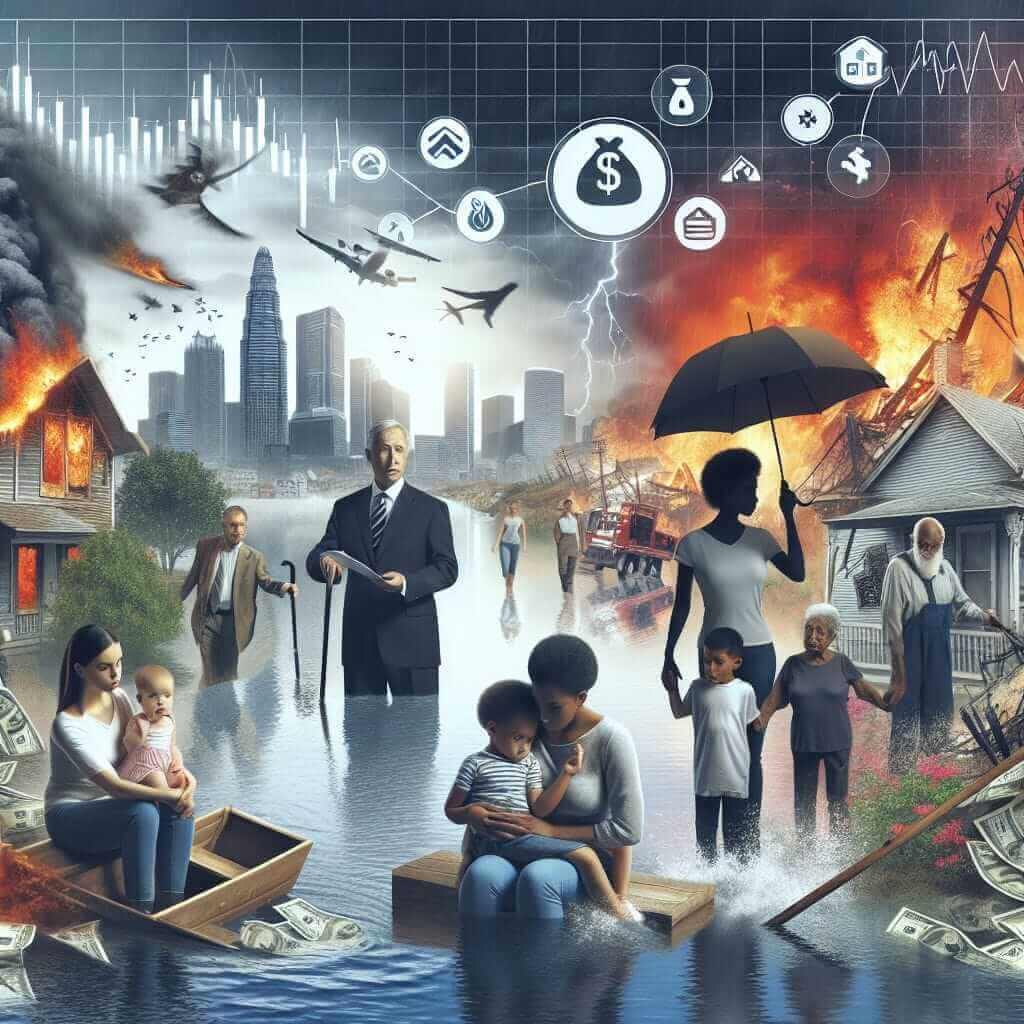The Reading section of the IELTS exam can be challenging as it requires not only a good vocabulary but also the ability to understand complex texts. One of the pertinent topics that often appear in IELTS Reading passages due to its current relevance is the economic consequences of climate change. Understanding this topic not only improves comprehension skills but also equips you with prospected themes that might be included in future exams.
The Economic Consequences of Climate Change on Insurance Industries
Climate change has far-reaching impacts beyond just the environment – it significantly affects various industries, particularly insurance. As natural disasters like floods, hurricanes, and wildfires increase in frequency and intensity, insurance companies face rising costs and challenges in risk management. This topic, due to its complexity and relevance, is frequently featured in exam reading passages.

Reading Passage
Text Format: Medium Difficulty
Climate change is radically altering the economic landscape of the insurance industry. As the frequency and severity of weather-related events such as hurricanes, floods, and wildfires increase, insurance companies face unprecedented challenges. These natural disasters result in higher claims, leading to financial instability and significant changes in how insurers assess and manage risk.
Insurance companies traditionally based their risk assessment models on historical data, but the accelerating pace of climate change makes past data less reliable. Insurers are compelled to incorporate climate projections into their models, a task fraught with uncertainty. The growing unpredictability in predicting natural disasters poses a substantial risk to the solvency of insurance firms.
Further, the increased insurance premiums needed to cover the higher risk place a financial burden on consumers and businesses. As a result, some regions particularly prone to natural disasters may become insurable only at prohibitively high costs, effectively driving people and companies out of these vulnerable areas. This economic migration further exacerbates the financial strain on the insurance sector.
Governmental policies and regulations are also evolving in response to climate change, adding another layer of complexity. Insurers must navigate new compliance requirements and, in many cases, contribute to funding climate resilience projects. While such investments may reduce future risks, they also represent a significant upfront cost.
In conclusion, the intersection of climate change and the insurance industry reveals a complex web of economic consequences. The industry must innovate and adapt to survive and thrive amid these evolving challenges.
Questions
Questions 1-5: Multiple Choice
-
How has climate change impacted the insurance industry?
- a) Decreased its financial stability
- b) Improved risk management models
- c) Lowered premiums
- d) Increased competition
-
Why are traditional risk assessment models less reliable now?
- a) Increased precision in historical data
- b) Accelerating pace of climate change
- c) Decreased frequency of natural disasters
- d) Improved climate projections
-
What is a significant consequence of higher insurance premiums?
- a) Decreased insurance coverage
- b) Increased profitability for insurers
- c) Financial burden on consumers
- d) Stability in the insurance market
-
What challenge does the growing unpredictability of natural disasters pose?
- a) Easier risk management
- b) Higher accuracy in predictions
- c) Risk to solvency of insurance firms
- d) Lower insurance claims
-
How do governmental policies affect the insurance industry?
- a) Increase in profitability
- b) More straightforward compliance
- c) Complex regulatory requirements
- d) Simplified risk management
Questions 6-10: True/False/Not Given
- Traditional risk assessment models are becoming more accurate. (False)
- Higher insurance premiums may drive economic migration. (True)
- Climate resilience projects are inexpensive for insurers. (False)
- Insurers are ignoring climate projections in their models. (False)
- Governmental policies are not changing in response to climate change. (False)
Answer Key and Explanations
- a) Decreased its financial stability – The passage discusses how increased claims from natural disasters cause financial instability.
- b) Accelerating pace of climate change – Traditional models are less reliable because the climate is changing faster than historical data can account for.
- c) Financial burden on consumers – Higher premiums are a result of increased risk, placing a financial burden on policyholders.
- c) Risk to solvency of insurance firms – Unpredictability increases financial risk, affecting solvency.
- c) Complex regulatory requirements – Evolving governmental policies add complexity to insurance industry operations.
Common Mistakes to Avoid
- Misinterpreting Keywords: Ensure you understand the context in which keywords are used.
- Overlooking Details: Pay attention to small details that differentiate answer choices.
- Time Management: Balance time well across all questions.
Vocabulary
- Solvency (noun) /ˈsɒlvənsi/: Ability to meet long-term financial obligations.
- Unprecedented (adjective) /ʌnˈprɛsɪˌdɛntɪd/: Never done or known before.
- Fraught (adjective) /frɔːt/: Filled with (something undesirable).
- Prohibitively (adverb) /prəʊˈhɪbɪtɪvli/: Excessively high.
Grammar Focus
- Complex Sentences: “While such investments may reduce future risks, they also represent a significant upfront cost.”
- Structure: Independent clause + subordinate clause.
- Conditionals: “If historical data becomes less reliable, insurers must adapt their models.”
- Type 1 Conditional: If + present simple, (then) will + base verb.
Conclusion
To excel in the IELTS Reading exam, practice with passages that are relevant and timely, like the economic effects of climate change on insurance industries. Focus on key vocabulary, understand complex sentences, and manage your time effectively during the exam. Happy studying!